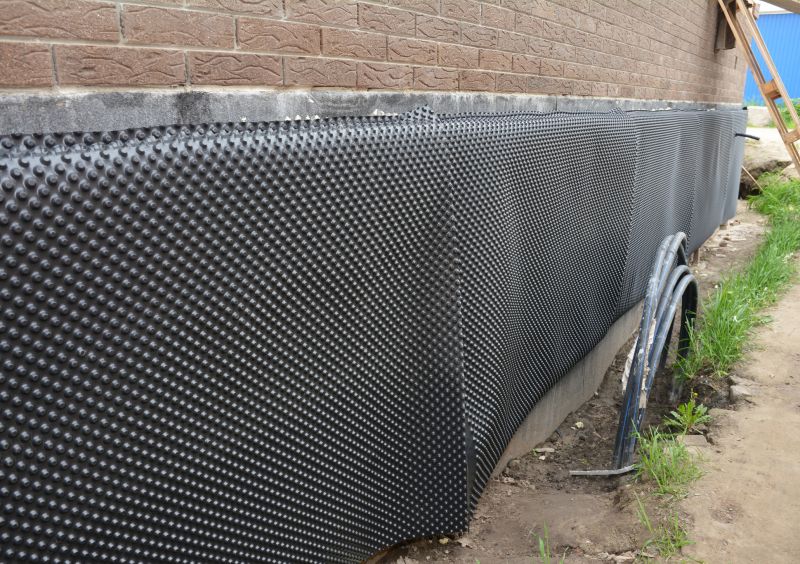Top Waterproofing Products for Protecting Your Home
Discover the leading waterproofing solutions that ensure durability and prevent water damage in residential and commercial spaces.
 Waterproofing products are essential for protecting structures, surfaces, and materials from water intrusion and damage. Whether you're working on a basement, roof, foundation, or outdoor surface, selecting the right waterproofing solution can significantly extend the lifespan of your property. These products are designed to create a barrier that prevents water penetration, helping to mitigate issues such as leaks, mold growth, and structural deterioration. Proper application and choosing the appropriate type of waterproofing material tailored to your specific needs are crucial steps in ensuring effective protection.
Waterproofing products are essential for protecting structures, surfaces, and materials from water intrusion and damage. Whether you're working on a basement, roof, foundation, or outdoor surface, selecting the right waterproofing solution can significantly extend the lifespan of your property. These products are designed to create a barrier that prevents water penetration, helping to mitigate issues such as leaks, mold growth, and structural deterioration. Proper application and choosing the appropriate type of waterproofing material tailored to your specific needs are crucial steps in ensuring effective protection.
Top Overall Option
Liquid Waterproofing Membrane
A versatile liquid membrane offers seamless coverage and strong adhesion to various surfaces, making it suitable for both horizontal and vertical applications. It creates a durable, flexible barrier that can accommodate slight movements in structures, reducing the risk of cracking or leaks. Easy to apply with brushes, rollers, or sprayers, this type of waterproofing is popular for roofing, basements, and balconies. Its ability to form a continuous, seamless layer helps ensure comprehensive water resistance, making it a reliable choice for many waterproofing needs.
Types of Products For Waterproofings
Liquid Waterproofing Membranes
Fluid coatings that form seamless, flexible barriers suitable for various surfaces and applications.
Sheet Membranes
Pre-formed sheets made of rubber, bitumen, or plastic that are applied to surfaces for waterproofing.
Bituminous Coatings
Asphalt-based coatings that provide durable waterproof layers, often used on roofs and foundations.
Polyurethane Coatings
High-performance coatings that offer excellent elasticity and adhesion for waterproofing surfaces.
Cementitious Waterproof Coatings
Waterproof cement-based products suitable for basements, tunnels, and water tanks.
Sealants and Caulks
Flexible sealants used to fill cracks and joints to prevent water ingress.
Waterproof Paints
Coatings designed to be painted onto surfaces to provide a water-resistant barrier.
Crystalline Waterproofing
Chemical treatments that penetrate concrete and form crystalline structures to block water passage.
Waterproofing Tapes
Adhesive tapes used to seal joints, cracks, and seams in various waterproofing applications.
Spray-On Waterproofing
Sprayable coatings that provide quick and uniform waterproof barriers for roofs and surfaces.
Waterproofing Fabrics and Meshes
Reinforcing materials used in conjunction with membranes to enhance durability.
Hydrophobic Sealants
Sealants that repel water and are used to protect surfaces from moisture intrusion.
Popular Choices
Widely used for their seamless coverage and adaptability to various surfaces.
Commonly applied on roofs and foundations for their durability and proven performance.
Chosen for their flexibility and strong adhesion properties in demanding environments.
Popular for outdoor surfaces and walls requiring a simple, effective water-resistant layer.
Preferred for large-scale waterproofing projects like basements and tunnels due to their reliability.
Frequently used for sealing joints, cracks, and seams in various construction applications.
Valued for their ability to penetrate concrete and provide long-lasting water resistance.
Favored for quick application and uniform coverage on roofs and large surfaces.
Effective for sealing joints and cracks, especially in retrofit projects.
Common choice for basement walls and water tanks due to compatibility with concrete surfaces.
In residential settings, waterproofing is often used to safeguard basements and foundations from groundwater seepage. For outdoor surfaces like decks and patios, waterproof coatings help prevent water from seeping into the underlying materials, which can cause cracking and decay over time. Commercial and industrial buildings also rely heavily on waterproofing solutions to maintain integrity and safety standards. From liquid membranes to sheet membranes and sealants, there are numerous options available, each suited to different applications and environments.
The selection process involves considering factors such as the type of surface, exposure conditions, and the level of water resistance required. Proper surface preparation, correct application techniques, and adherence to manufacturer instructions are vital for optimal results. Additionally, some waterproofing products are designed for specific uses, such as vapor barriers or waterproof paints, offering versatility for various projects. Investing in quality waterproofing materials can help prevent costly repairs in the future and maintain the structural health of buildings and surfaces in Greendale, WI, and beyond.
Key Buying Considerations
- Identify the specific surface or structure that requires waterproofing to choose the most suitable product type.
- Consider the expected exposure to water, weather conditions, and movement of the structure when selecting a waterproofing solution.
- Evaluate the compatibility of the product with existing materials and surfaces for proper adhesion.
- Determine whether a liquid, sheet, or sealant-based product best fits your project needs.
- Assess the ease of application and required tools or equipment for the waterproofing process.
- Review the curing time and drying process to plan your project timeline accordingly.
- Check for flexibility and elasticity features, especially for surfaces prone to movement or cracking.
- Look for products with proven durability and resistance to UV rays, chemicals, and temperature fluctuations if applicable.
- Ensure the product is suitable for indoor or outdoor use based on your project location.
- Consider the longevity and maintenance requirements of the waterproofing solution.
- Verify whether the product is compatible with waterproofing membranes or coatings already in place.
- Review safety instructions and handling precautions to ensure safe application.
- Compare warranties or guarantees offered by manufacturers for added confidence.
- Determine the cost-effectiveness by balancing quality, durability, and budget constraints.
- Consult with professionals or local suppliers for recommendations tailored to your specific project in Greendale, WI.
This content may contain affiliate links. We may earn a commission from qualifying purchases to help support our work.
